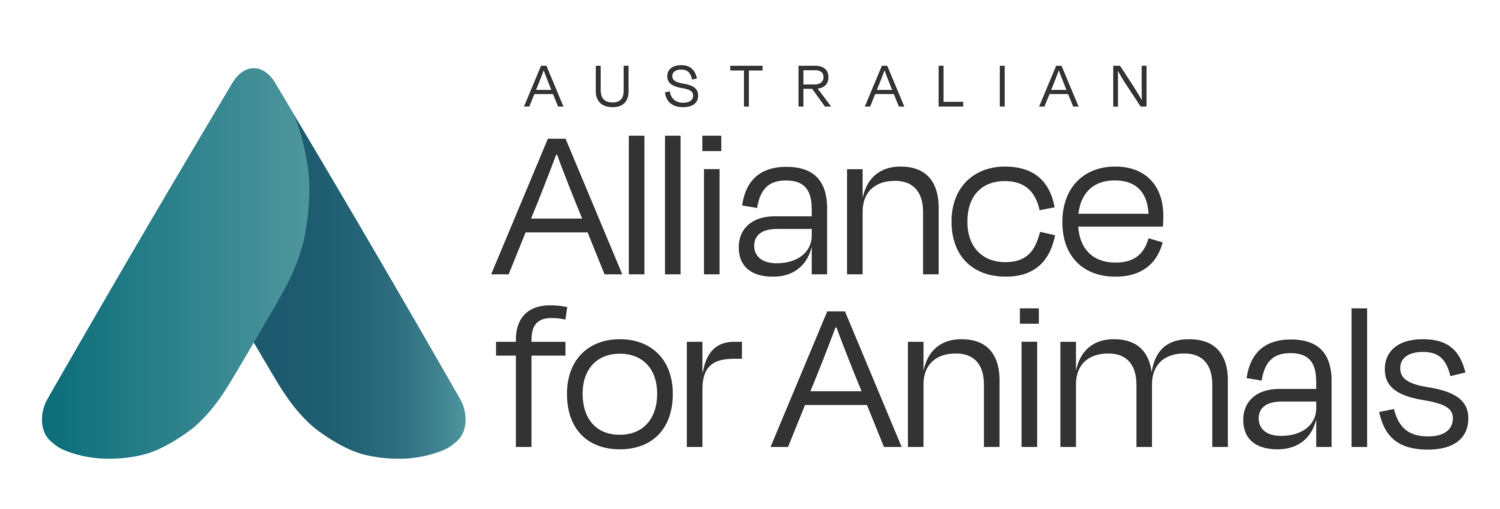How will Ministers for Animal Welfare help animals?
Image: Farm Transparency Project
Australians care about animal welfare and expect animals to be treated with compassion and respect. Under the current animal welfare governance system, animal welfare is treated as a low-priority issue. This is reflected in the decision by most state, territory and federal governments to delegate responsibility for animal welfare to agriculture and primary industries ministers, where it is inevitably overshadowed by industry interests.
Relocating animal welfare to a separate ministerial portfolio is essential for elevating the importance of animal welfare within government and better reflecting modern community values towards animals. This is one of six pivotal reforms proposed by the #FairGoForAnimals campaign, designed to help build a fairer Australia for animals.
Agriculture Ministers have competing responsibilities which creates a conflict of interest.
Ministerial portfolios are a bundle of responsibilities given to a member of a government to oversee. The ministers who are delegated with responsibility for animal welfare therefore have significant influence over the way animal welfare policies and standards are developed. They are empowered to determine the content of national welfare standards, to decide how these standards are integrated into state laws, and they oversee the regulatory frameworks that govern the treatment of animals.
Presently, the ministers responsible for industries that use animals, such as agriculture and racing, are also responsible for animal welfare policy, which gives rise to competing interests. As ministers for agriculture, they are focused primarily on increasing productivity and the gross value of production for industries falling within their portfolio. In most instances, industry interests will therefore outweigh animal welfare concerns, leaving animals subjected to cruel practices. The widespread use of battery cages in egg farming and the continued acceptance of high injury and euthanasia rates in the greyhound racing industry clearly illustrates how industry interest often overshadow concerns for animal welfare.
Despite studies showing that racing greyhounds on straight tracks reduces the number of deaths and injuries, the industry continues to use oval tracks.
What does establishing a Minister for Animal Welfare mean?
Establishing Ministers for Animal Welfare at state, territory and federal levels means recognising animal welfare in the title of a ministerial portfolio – a Minister’s area of responsibility. Doing so will separate animal welfare from current ministerial portfolios that have competing responsibilities.
Rather than competing with agriculture, animal welfare should be appropriately recognised as a discrete area of governance with its own law and policy agenda
Image: Farm Transparency Project
Separate animal welfare ministerial portfolios will reduce conflicts of interest.
Establishing Ministers for Animal Welfare will reduce conflicts of interest, as ministers will no longer have competing responsibilities. This separation will improve role clarity, allowing Ministers for Agriculture to focus on enhancing productivity and increasing the overall value of production, and Ministers for Animal Welfare to concentrate on animals and their welfare. Separating these responsibilities will elevate the importance of animal welfare issues in government, ensuring it receives the attention and resources it deserves. Additionally, it will give animal welfare more weight in decision-making processes, and increase transparency and accountability for policy decisions and performance.
Community expectations will be better met.
Studies have shown that our animal welfare laws and policies are not meeting the community's expectations. In 2022, the Alliance commissioned a study with BehaviourWorks Australia, which found the public’s trust in government regarding animal welfare is low, and that decisions regarding animal welfare should be made by an independent authority. Having a minister who is focused on improving animal welfare will mean that decisions regarding animal welfare will better reflect public sentiment.
Will you join a growing number of Australians in calling for Ministers for Animal Welfare?
Establishing Ministers for Animal Welfare is one of six crucial reforms under the #FairGoForAnimals campaign, designed to create a fairer Australia for all animals. The proposed reforms will create a more transparent, accountable, and independent governance system for animal welfare in Australia. Show your support today by signing the pledge today.





